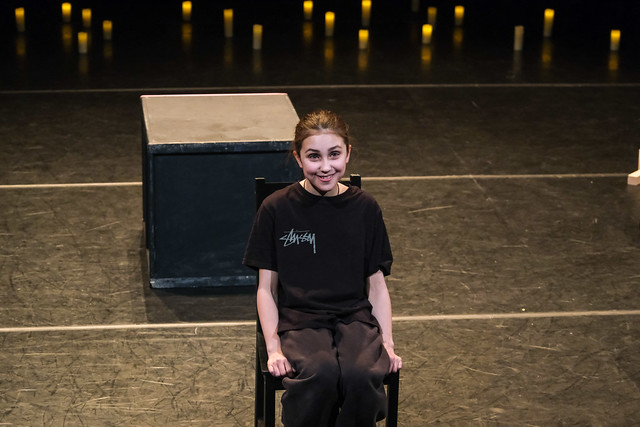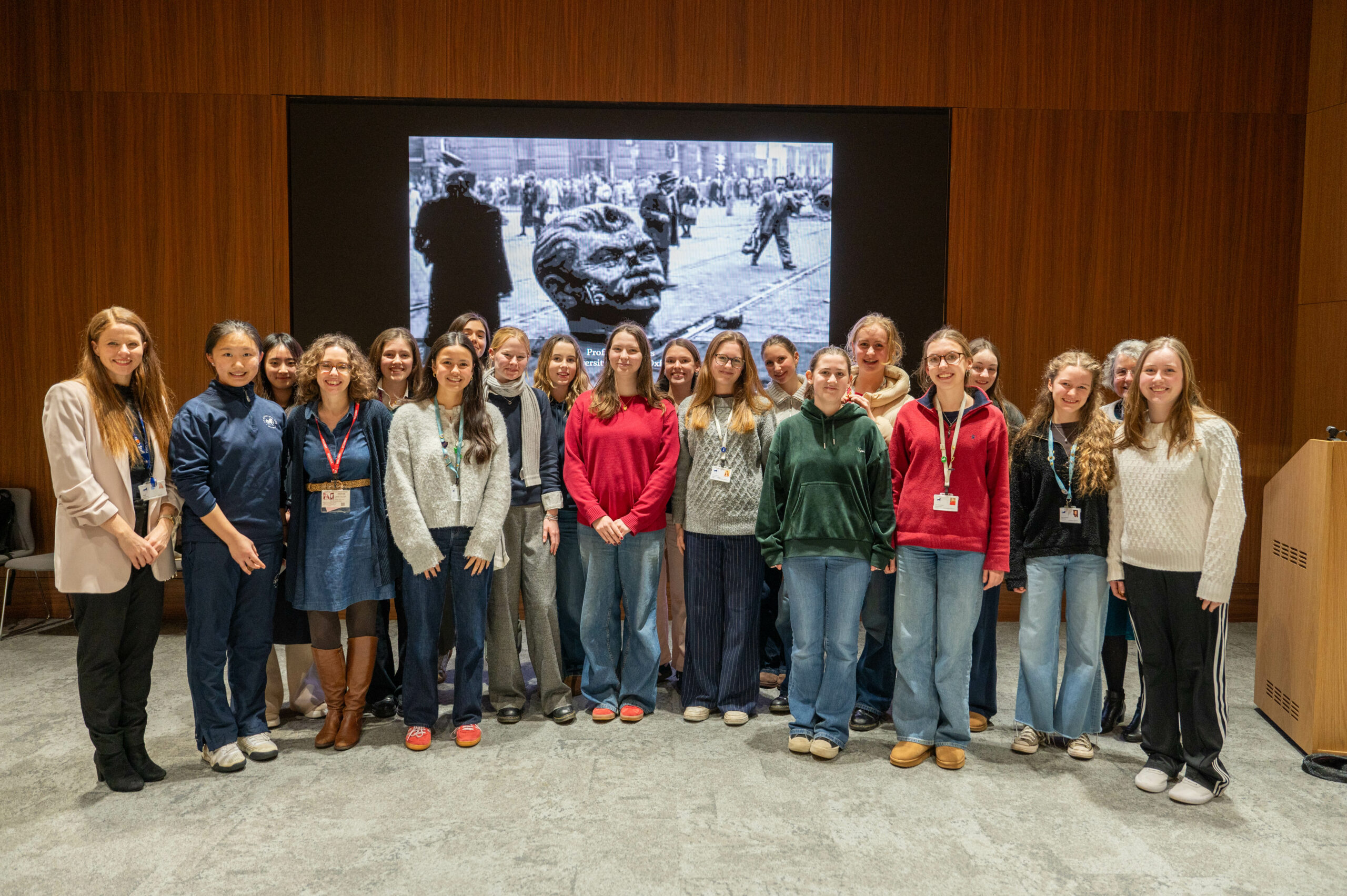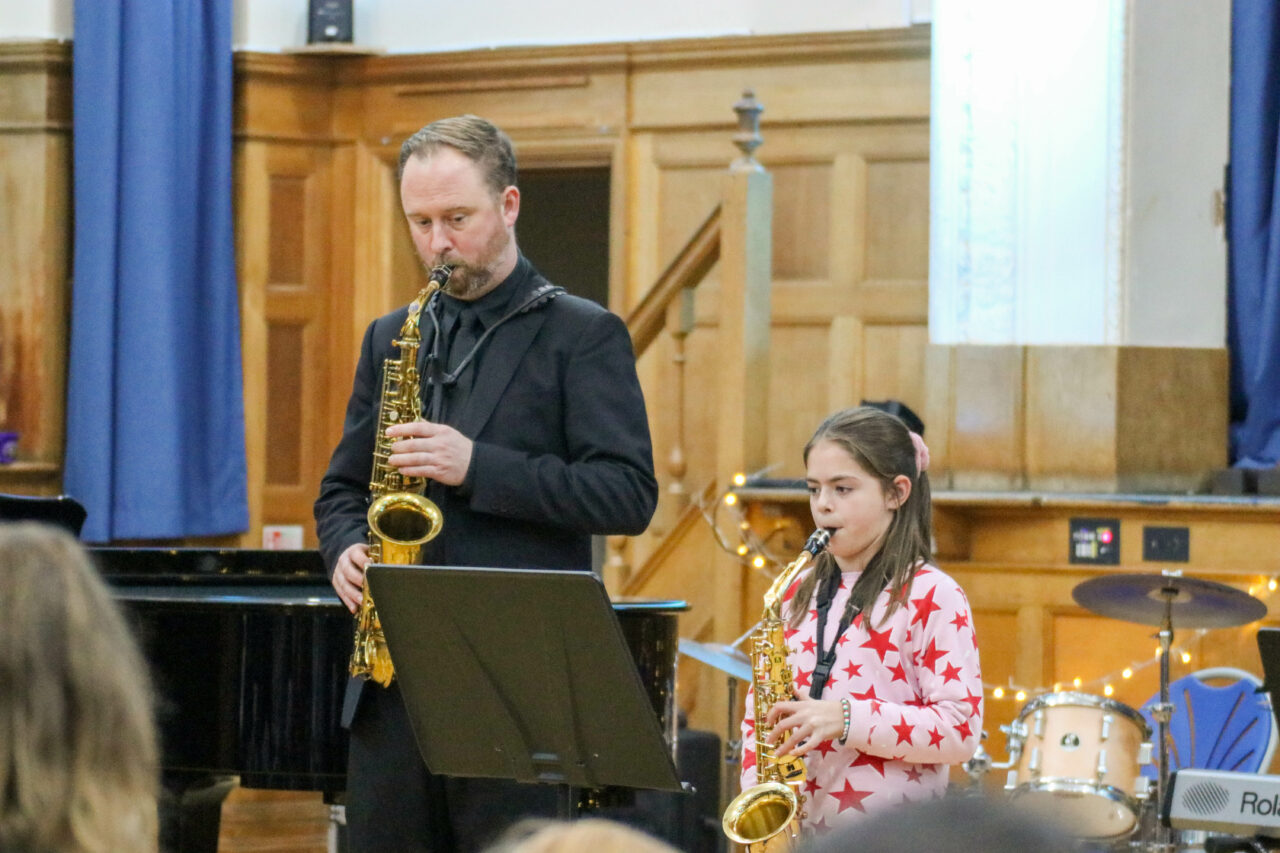The Drama Scholars’ Play
‘You’re born a girl. You grow up. You grow old. You die. But along the way can you really forge your own identity? Can you actually choose your own destiny? And would you do anything differently if you could do it all over again?
On Tuesday 21st March, the Headington Drama Scholars put on their annual scholars’ performance.
This year’s show was a production of Jemma Kennedy’s “Second Person Narrative”. This performance was met with much enthusiasm by the extremely able cast and skilled director which was completely translated within the audience’s reception.
The play was a reflective commentary on the nature of growing up, the criticisms and restrictions society places on young women and how we can try and seek freedom from these confinements. However, due to its humoristic elements, despite the underlying melancholy of life that we must face, they showed that there are always forms of hope and comfort that come alongside life and allow us to achieve our completed, not fully recognised potential.
Some notable key moments of the play which stood out to us were: the use of the cyclical structure which connected the beginning to the end of the play, showing the nature of life and ideas of reincarnation as well as allowing us, the audience, to look at the message of the beginning with new insight after watching the play; the incredibly energetic and fun dance sequence which allowed the performers to play around with different creative mediums as well as the beautiful but subtle end scene (before the finale) which gave us all a moment to pause and reflect on this woman’s life we had just witnessed unfolding.
The set and lighting throughout were simple but enhanced the performance of the actors by reflecting the mood and setting of the individual scenes. The actors carefully choreographed the movement of set pieces as they remained visible in between scene changes but these transitions were slick and felt purposeful instead of disrupting the performance. Notably, there were many candles near the back of the stage which, as well as providing atmospheric lighting, also represented the idea of individual souls echoing the underlying idea of reincarnation – first suggested in the brief blurb of the play as well as in the beginning and the end of the play.
As we mentioned earlier, there was an underlying melancholy in the play but at moments of particular importance or sadness, the lighting faded into a deeper blue which highlighted the mood and atmosphere the actors’ performance conveyed. Because this play was episodic in structure, at the beginning of each ‘chapter’ of the girl’s life there was a projection on the back wall which gave us a title for this scene – the importance of this title was shown in the scene – as well as a brief description of the preface for this scene or what would unfold. These projections helped the audience understand the irregular time jumps of the play, the ambiguity of which was emphasised by the multi-rolling, so they could focus more on the actual content as opposed to trying to establish when this took place.
The performance consisted of 30 scenes evenly spread throughout the cast. What made the play so notable is the lack of a singular lead actress as it allowed the story to connect with everyone in the audience, demonstrating that this experience does not solely impact one person, but everyone.
The exemplary acting displayed by each cast member was extremely resonant with us, as the multifaceted performance required them to grapple with different complexities within the multitude of characters and scenarios they were within.
It is evident that there is much able and potential talent within the Headington Drama Scholars. The play was a fitting farewell to the departing U6 and U5 Drama Scholars Charlotte, Bethany, Clemmie and Anna, who will be very much missed next year; as well as welcoming in the new U3, U4 and L6 scholars for whom this was their debut performance.
We are thrilled to await their upcoming performance next year of ‘The Crucible’.
Credits to: All the drama scholars, Mr Phil Macken (director as well as voice-over), Mr John Welton (set and lighting) as well as anyone else involved in the rehearsal and performance process.
by Asha and Bethan (L6)




